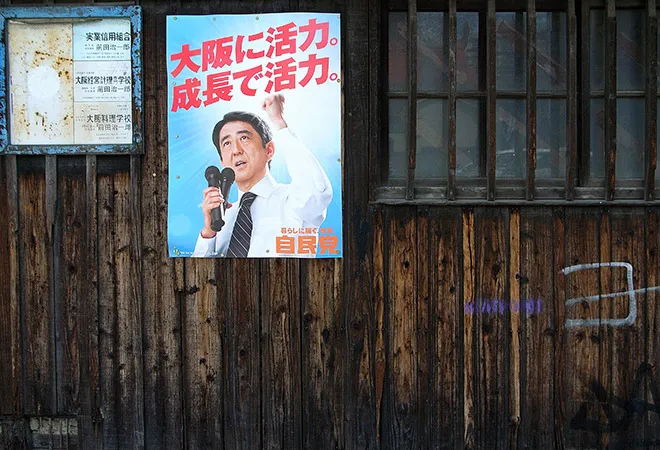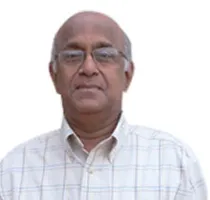Prime Minister Shinzo Abe has once again proved that he is a shrewd political strategist who understands Japanese politics better than his rivals. His latest controversial decision to hold snap elections to the House of Representatives one full year earlier than required raised many eyebrows in Japan and many analysts called it a risky gamble.
Mr. Abe’s ruling Liberal Democratic Party- Komeito coalition scored a dramatic victory capturing more than two-thirds majority seats in the Lower House.
Already enjoying more than two-thirds majority in the House, it was doubted whether he could even retain the existing strength leave alone the question of bettering it. When Abe took the decision to call the snap elections, he thought that it would be the usual “rubber stamp elections” which he could easily win as he had done in 2014. Though subsequently many developments like the rise of Ms. Yuriko Koike as a challenger seemingly created some hiccups. Finally, Mr. Abe’s ruling Liberal Democratic Party — Komeito coalition scored a dramatic victory capturing more than two-thirds majority seats in the Lower House.
This victory, fifth successive win in national elections since 2012, will strengthen Mr. Abe’s position within his own party and even ensure his re-election as party president for the third term in September 2018 and his continuance as the Prime Minister until 2021. Some of his detractors within the party who could have challenged him now look very much weakened by Mr. Abe’s victory.
He is likely to be the longest-serving post-war prime minister of Japan. It is to be noted that the next major national election he will face will be in the summer of 2019 which will elect half the members of the House Councilors. It means that he will have ample time to initiate and implement some of his long-cherished goals like amending the Constitution, denuclearisation of North Korea, and enhancing the consumption tax from 8 per cent to 10 per cent by 2019.
In particular, Mr. Abe will show utmost circumspection while dealing with the constitutional amendment which has posed the greatest challenge to successive governments in the past. He knows that since the issue can fuel a great deal of heat within the country, he has to move carefully to work out a national consensus before taking any hasty step. Winning 310 odd seats in the elections is not the same as winning the hearts of the people. In fact, many public opinion surveys taken after the election results conveyed the message that about 45-50 per cent of the people surveyed expressed their disagreement with Mr. Abe’s policies.
The Japanese Constitution lays down that any amendment to the Constitution needs to be approved by the two-thirds majority of both houses and that it has to be endorsed by the people in a national referendum. Mr. Abe knows that post-war Japanese pacifism has been centered on this Article and large segments of Japanese people strongly believe that this provision has given considerable stability to the reemergence of Japan as a strong peace-loving democratic state since 1952.
Mr. Abe is likely to remain in power for four more years augurs well for the rapidly advancing India-Japan partnership.
Mr. Abe will respect the strength of the people’s sentiments and explore all possibilities to mould a national consensus on the issue. It will take time, but it would need careful handling. For instance, there are many elements in his own party who are not fully convinced about changing the Constitution. Further, his own political ally the Komeito Party has long expressed its reservations to the constitutional amendment. To what extent it is going to cooperate with Mr. Abe will remain to be seen. In addition, while seeking to amend the Constitution, he has to give careful considerations to how other Asian neighbouring countries would respond to it.
Finally, the fact that Mr. Abe is likely to remain in power for four more years augurs well for the rapidly advancing India-Japan partnership. He has been one of the strongest pillars of the bilateral ties since 2006. In particular, his close relations with Mr. Narendra Modi have contributed to the deepening of the bilateral partnership since 2014. Mr. Abe’s recent summit meeting with Mr. Modi at Ahmedabad in September 2017 marked a major milestone in their relations.
This commentary originally appeared in WION.
The views expressed above belong to the author(s). ORF research and analyses now available on Telegram! Click here to access our curated content — blogs, longforms and interviews.




 PREV
PREV


